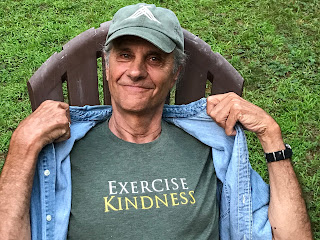The Teacher as Naturalist
Passage by William Penn
For our next entry, I have a historical
passage written by William Penn from the section on education, in “Some Fruits
of Solitude,” originally published in 1693. This passage is found in a pamphlet
by Elbert Russell, “Early Friends and Education,” published by The Philadelphia
Yearly Meeting of Friends’ Committee on Education in 1925. In this excerpt,
Russell points out Penn’s appreciation of the “importance of activity in
education and of the experimental and ethical in true learning.”
From my experience in attending and working at
Friends Schools, these two principles, ‘experiential learning’ and ‘Quaker ethical
values,’ are a central focus of Friends schools’ missions. I was intrigued to
see such early writings embracing this practice. And with so many schools
including a focus on Stewardship, this passage also offers a historical context
of learning from nature as a pedagogical practice. Enjoy reading and please
consider sharing your thoughts and interpretations!
We are in Pain to make them Scholars, but
not Men [or Women]! To talk, rather than to know, which is true Canting.
The first Thing obvious to Children is
what is sensible; and that we make no Part of their rudiments.
We press their Memory too soon, and
puzzle, strain, and load them with Words and Rules; to know Grammer and
Rhetorick, and a strange Tongue or two, that it is ten to one may never be
useful to them; Leaving their natural Genius to Mechanical and Physical, or
natural Knowledge uncultivated and neglected; which would be of exceeding Use
and Pleasure to them through the whole Course of their Life.
To be sure, Languages are not to be
despised or neglected. But Things are still to be preferred.
Children had rather be making of Tools and
Instruments of Play; Shaping, Drawing, Framing, and Building, &c. than
getting some Rules of Propriety of Speech by Heart: And those also would follow
with more judgment, and less Trouble and Time.
It were Happy if we studied Nature more in
natural Things; and acted according to Nature; whose rules are few, plain and
most reasonable.
Let us begin where she begins, go her
Pace, and close always where she ends, and we cannot miss of being good
Naturalists.


I love this piece and have shared it with my department members! As an outdoors person, I love Penn's ideas on Nature and Play! While I would not share this with my colleagues in the Foreign Language dept :-) I think it must be read in the context of classical language and study that was part of the canon in Penn's time.
ReplyDelete